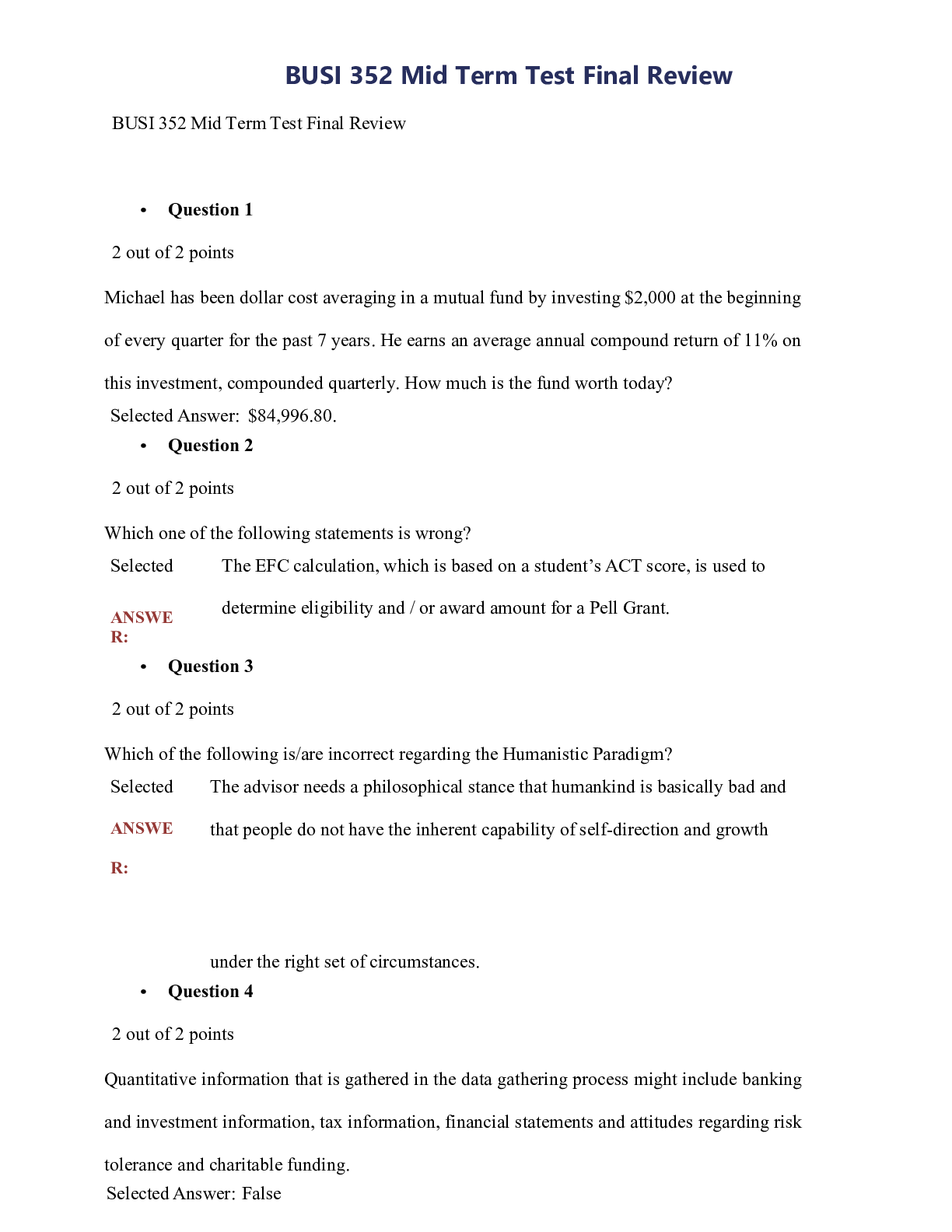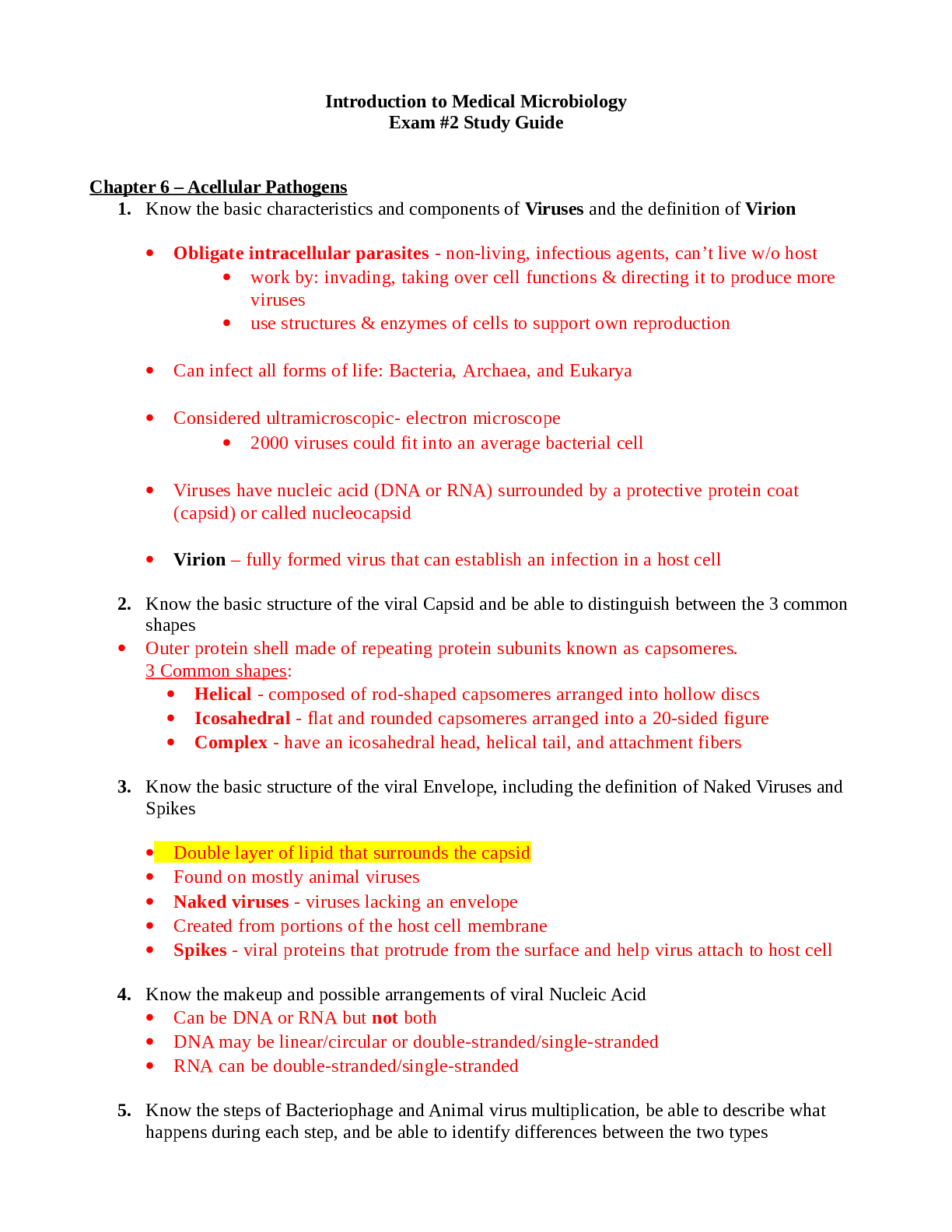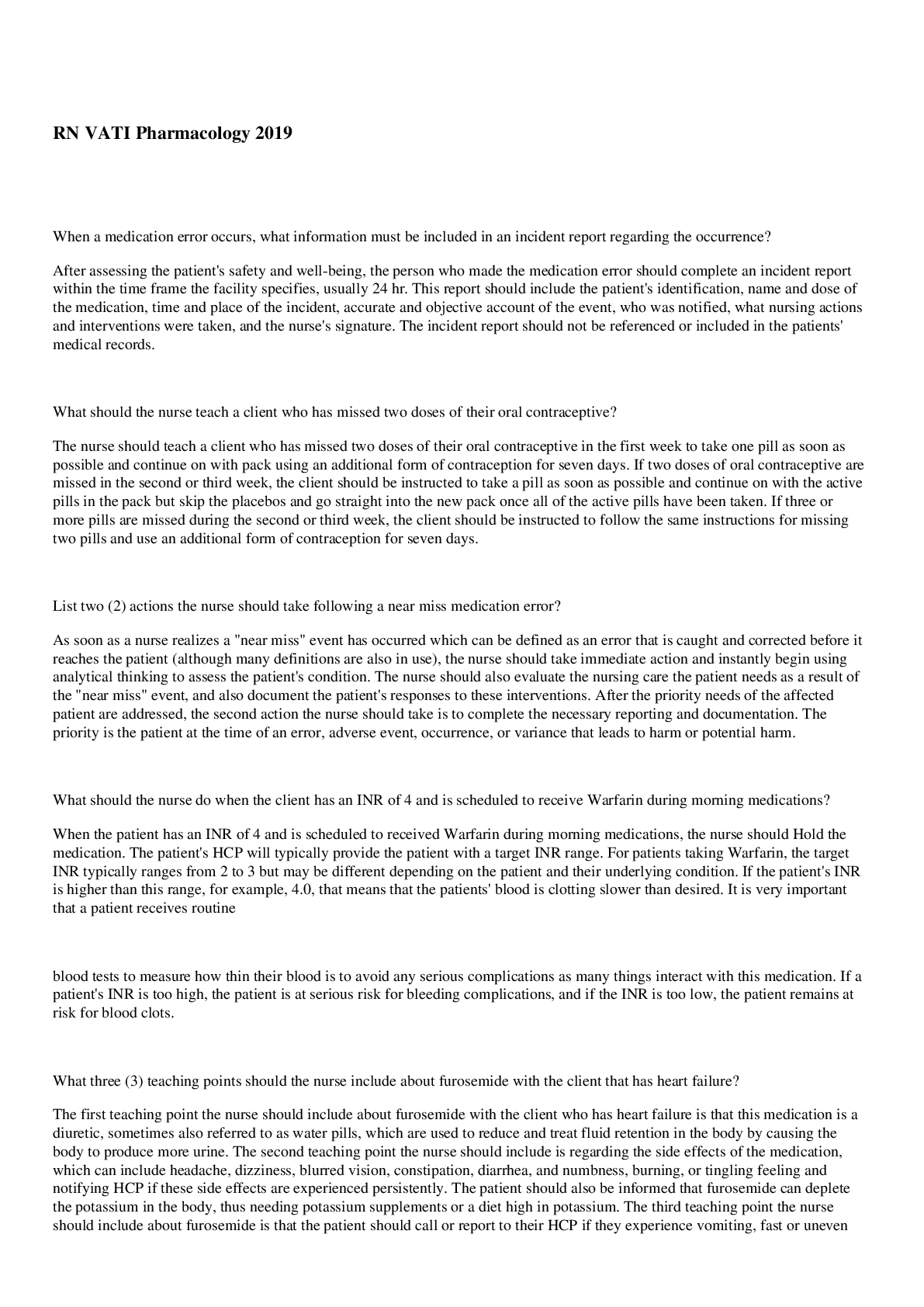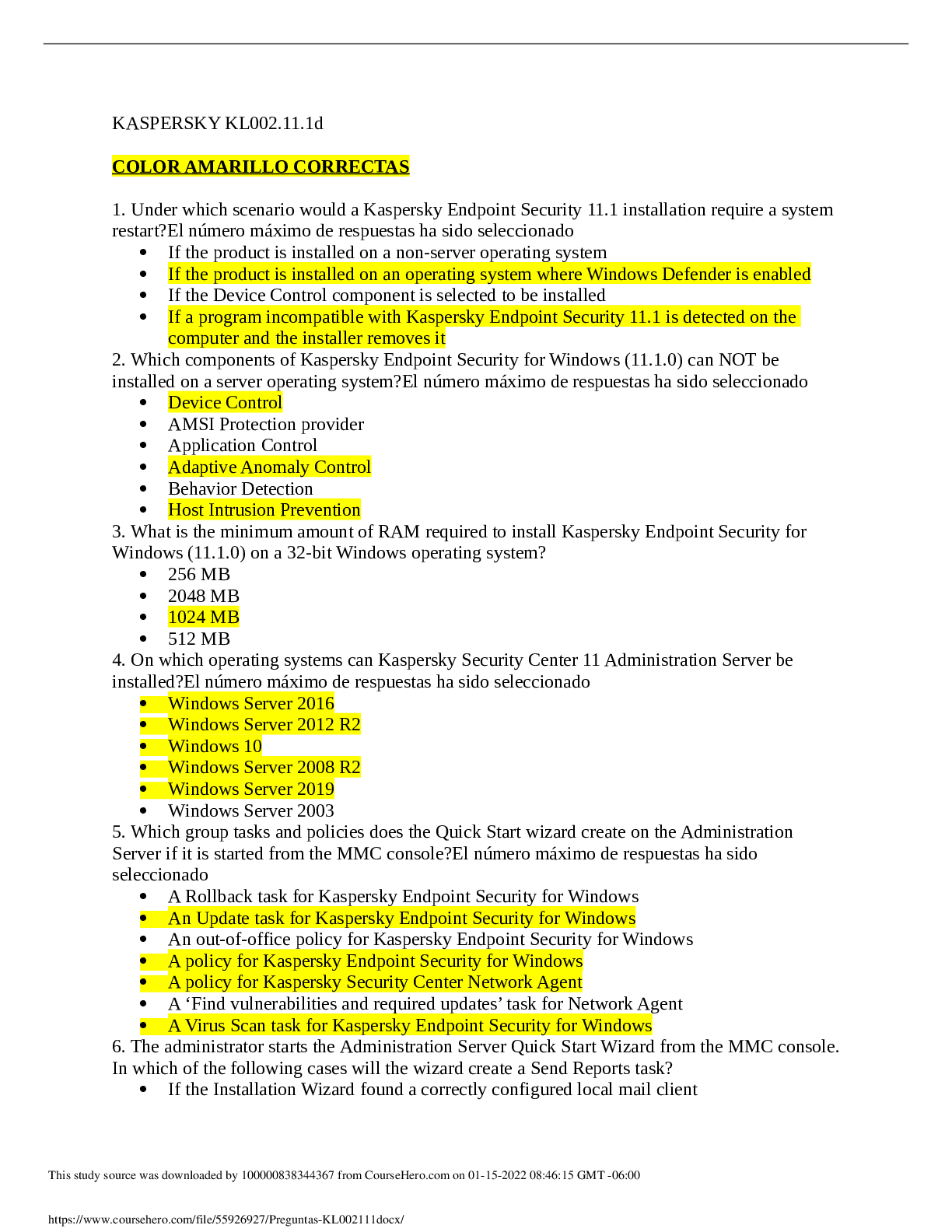Education > QUESTIONS & ANSWERS > Module 10 TESOL/TEFL Questions and Answers Graded A+ (All)
Module 10 TESOL/TEFL Questions and Answers Graded A+
Document Content and Description Below
Module 10 TESOL/TEFL Questions and Answers Graded A+ Regarding the key learning principles relating to young learners, which of the following is incorrect: a. Variety brings life to the young lear... ner classroom. b. Scaffolding is essential. c. Language development occurs to the same degree as their peers. d. A 'one size fits all' approach will not work. ✔✔c. Regarding the differences between younger and older young learners, which of the following is not cited in the younger young learners' list of characteristics? a. Like to have fun b. No fear or embarrassment when making mistakes c. Concerned with concrete experiences in the here and now: what they can see, touch, smell, etc. d. Starting to plan and control behavior ✔✔d. An affective factor in L2 learners is attitude. True or False? ✔✔True Which of the following is not suggested as a cause of fossilization? a. The learner is pressured to communicate ideas below her linguistic competence. b. Transferring language rules from the L1 to the L2, thereby causing confusion c. It can be the result of weak teaching and a poor learning environment. d. The learner's mind has reached subconscious conclusions that are difficult to unlearn. ✔✔a. It's OK to teach grammar in isolation when teaching younger young learners. True or False? ✔✔False Your key role is to help younger young learners to notice grammar. True or False? ✔✔True Which of the following is not a characteristic of implicit grammar instruction? a. A belief that learners can acquire language without overt grammar instruction - in much the same way as L1 learners b. A belief that success in language learning is down to grammar mastery and accurate usage c. A belief that conscious use of language forms and structures may result in a high affective filter, leading to poorer proficiency and fluency d. A focus on language use, not language usage ✔✔b. Meeting and using a word several times so that eventually it is remembered and recalled naturally is called language recycling. True or False? ✔✔True When teaching lexis to younger young learners, which of the following would be unwise: a. Use vocabulary which is concrete and relates to things they can see, feel, play with, and experience. b. Use repetition, rhyme, rhythm and movement. c. Use the same type of presentation to prevent them being distracted. d. Use realia they are familiar with. ✔✔c. When presenting vocabulary for learning to young learners, which of the following would be a poor strategy? a. Focusing on form b. Translating frequently c. Recycling frequently d. Using a variety of sources ✔✔b. Think 'projects' when teaching the skills to young learners, instead of just thinking about one-off events. True or False? ✔✔True Primarily, minimal responses help a younger young learner to: a. write correctly b. pronounce clearly c. listen carefully d. participate successfully ✔✔d. All stories used with younger young learners contain a plot. True or False? ✔✔False Research has shown that learners should know around 55% of the vocabulary to understand a story/text. True or False? ✔✔False The aim of a second reading of a new story is to ensure the learners are active participants in the process and not just passive listeners. True or False? ✔✔True [Show More]
Last updated: 1 year ago
Preview 1 out of 5 pages
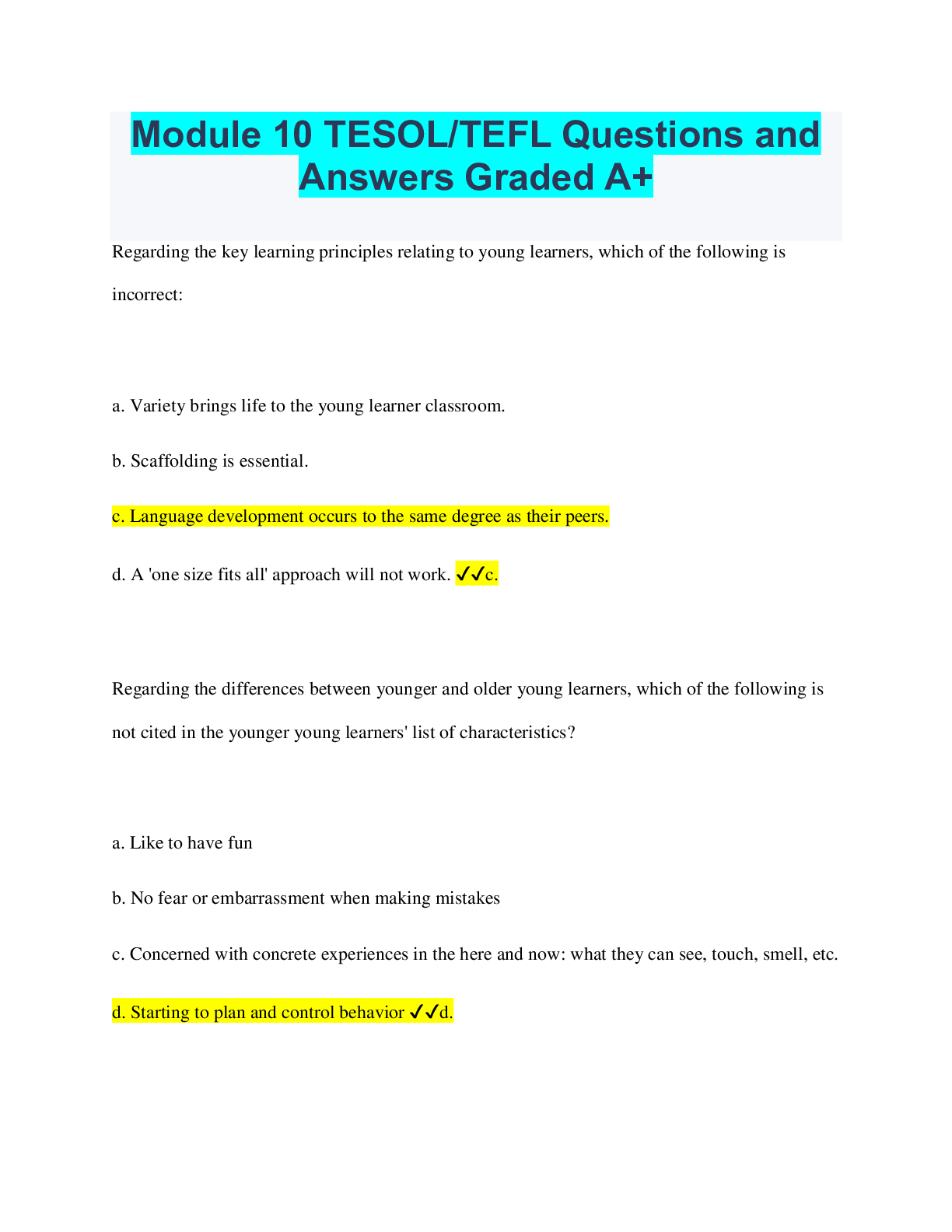
Buy this document to get the full access instantly
Instant Download Access after purchase
Buy NowInstant download
We Accept:

Reviews( 0 )
$10.00
Can't find what you want? Try our AI powered Search
Document information
Connected school, study & course
About the document
Uploaded On
Jul 21, 2023
Number of pages
5
Written in
Additional information
This document has been written for:
Uploaded
Jul 21, 2023
Downloads
0
Views
409


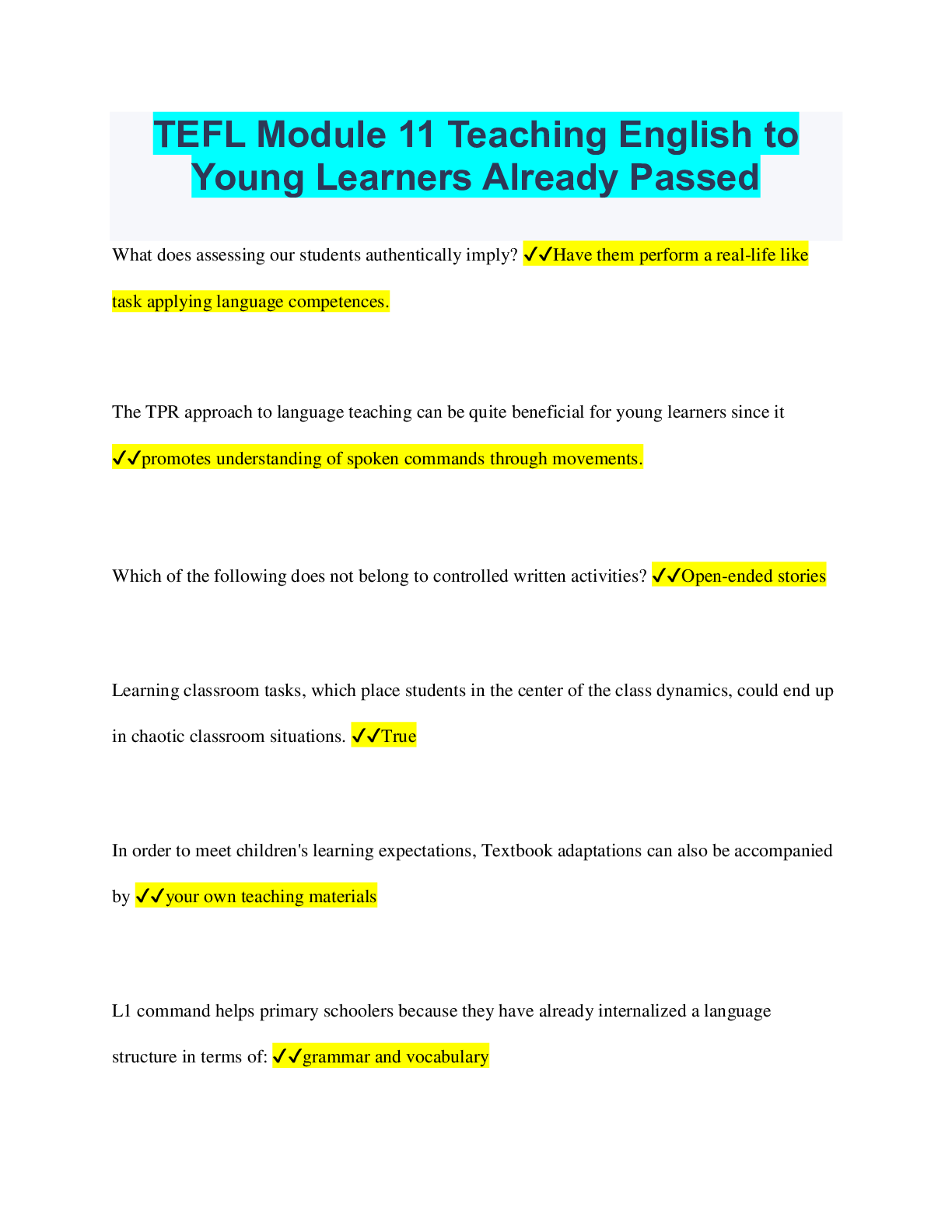
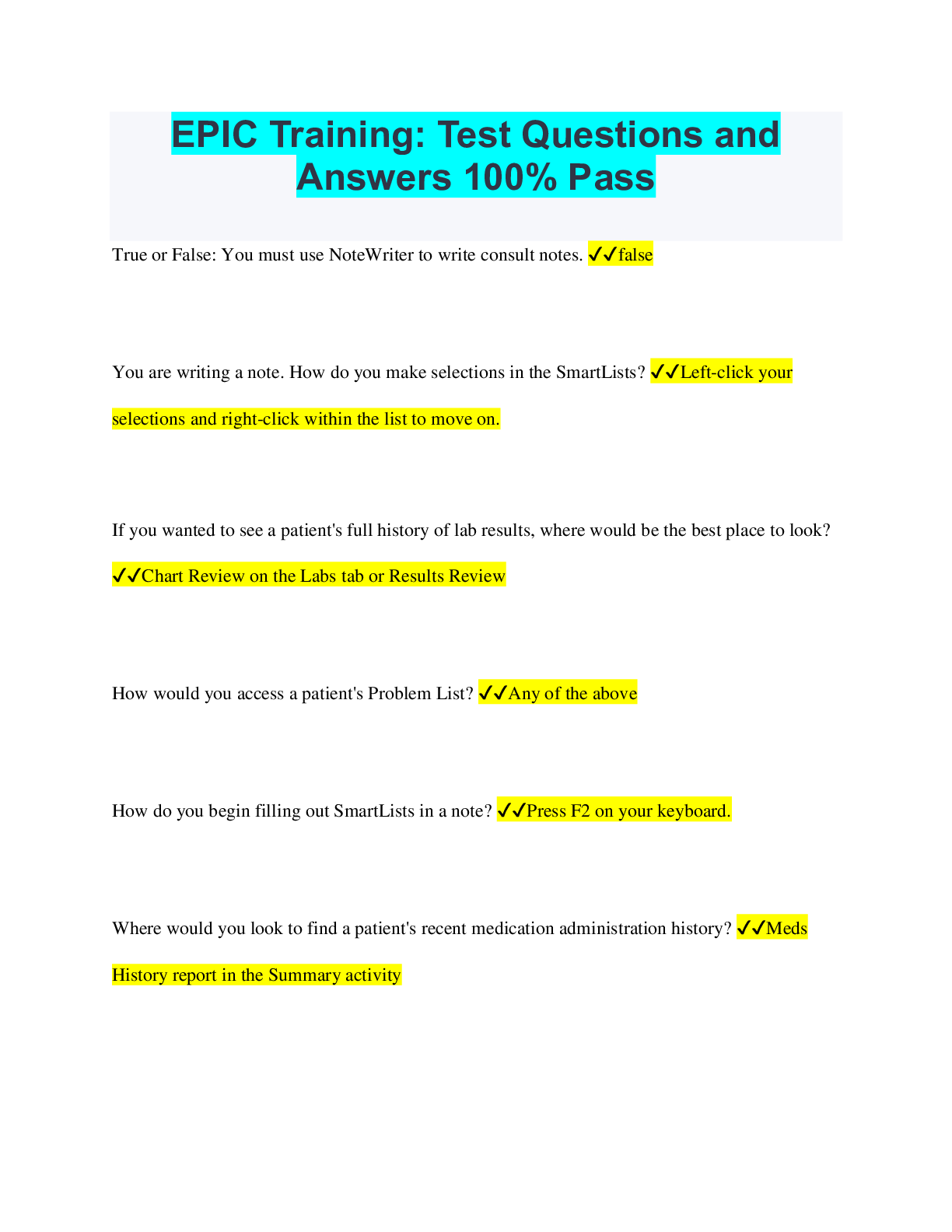
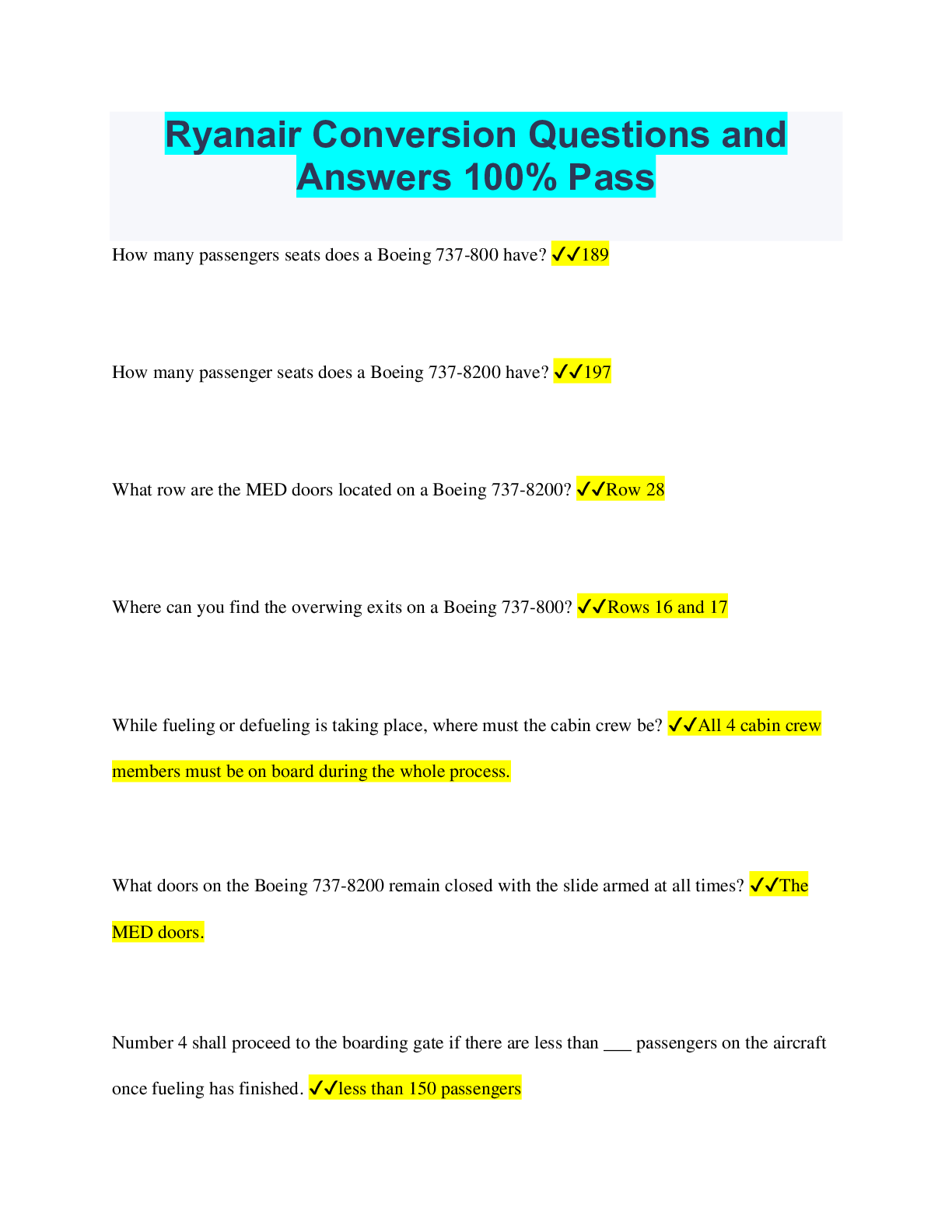



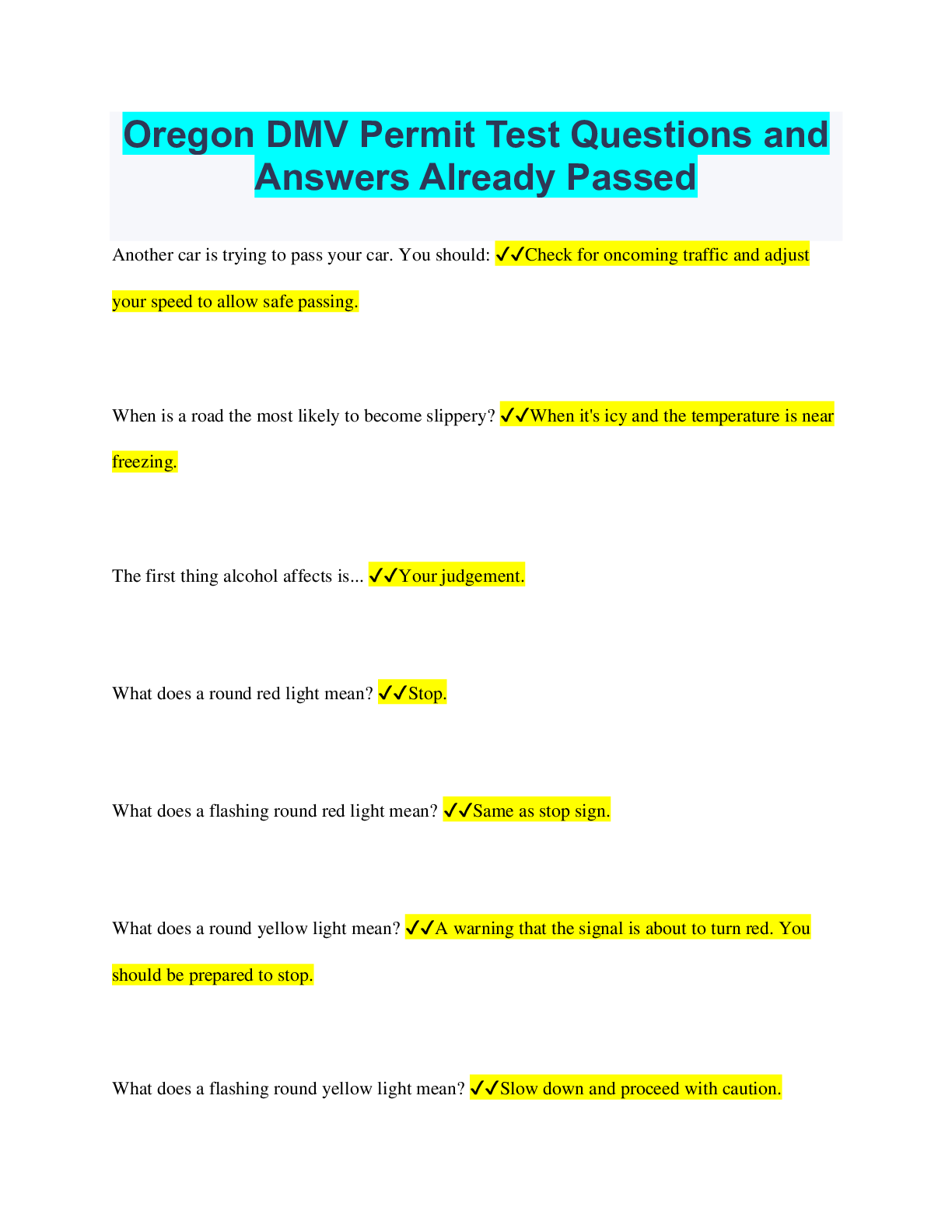
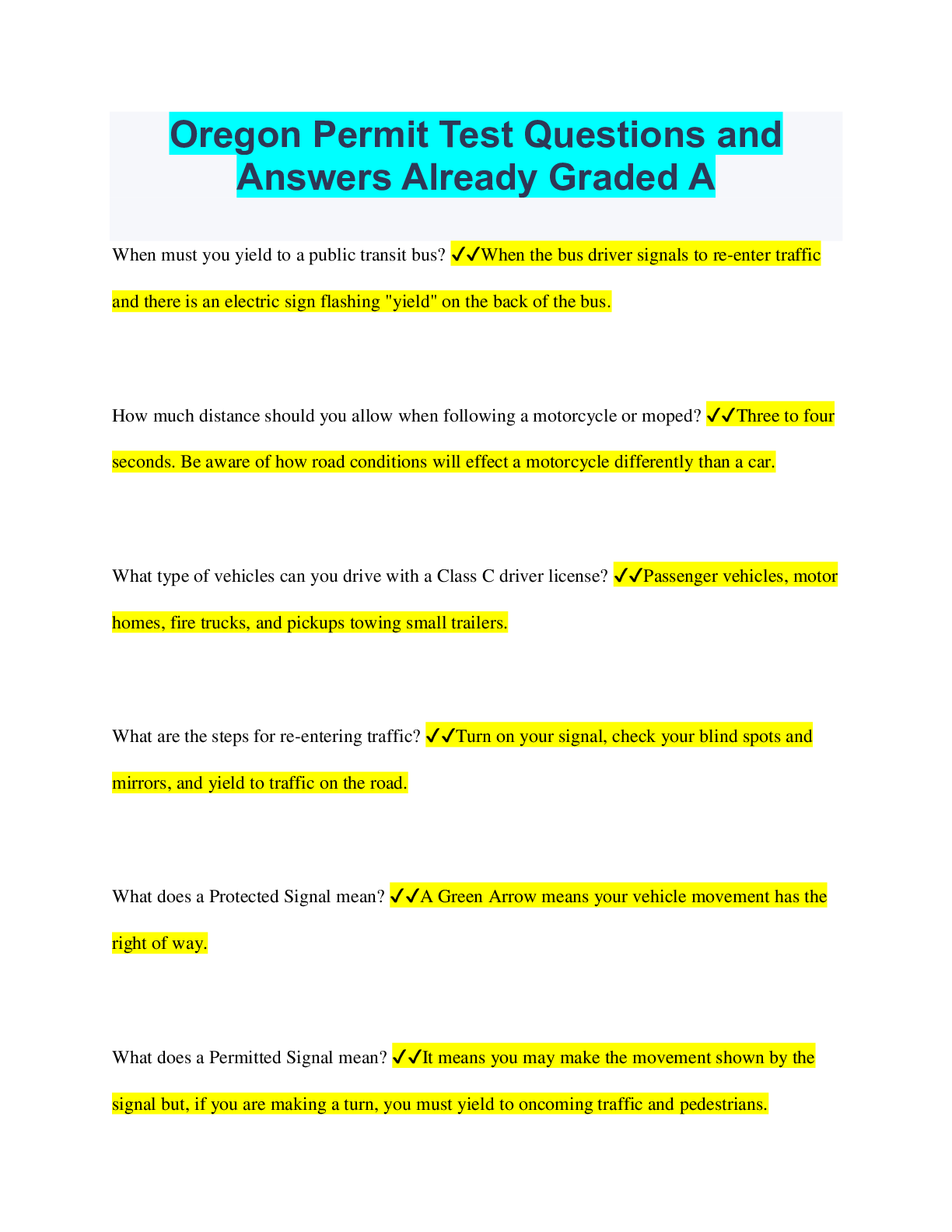
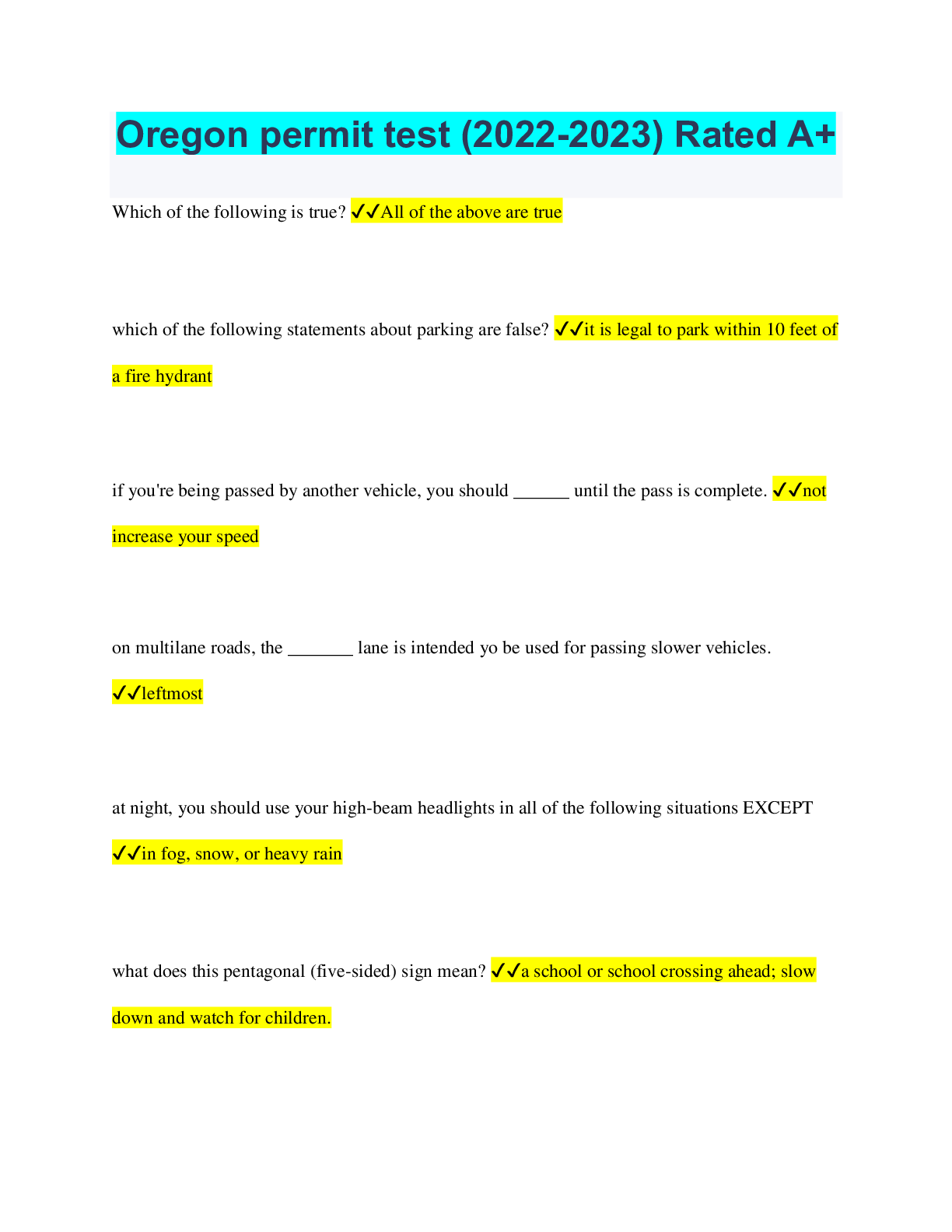
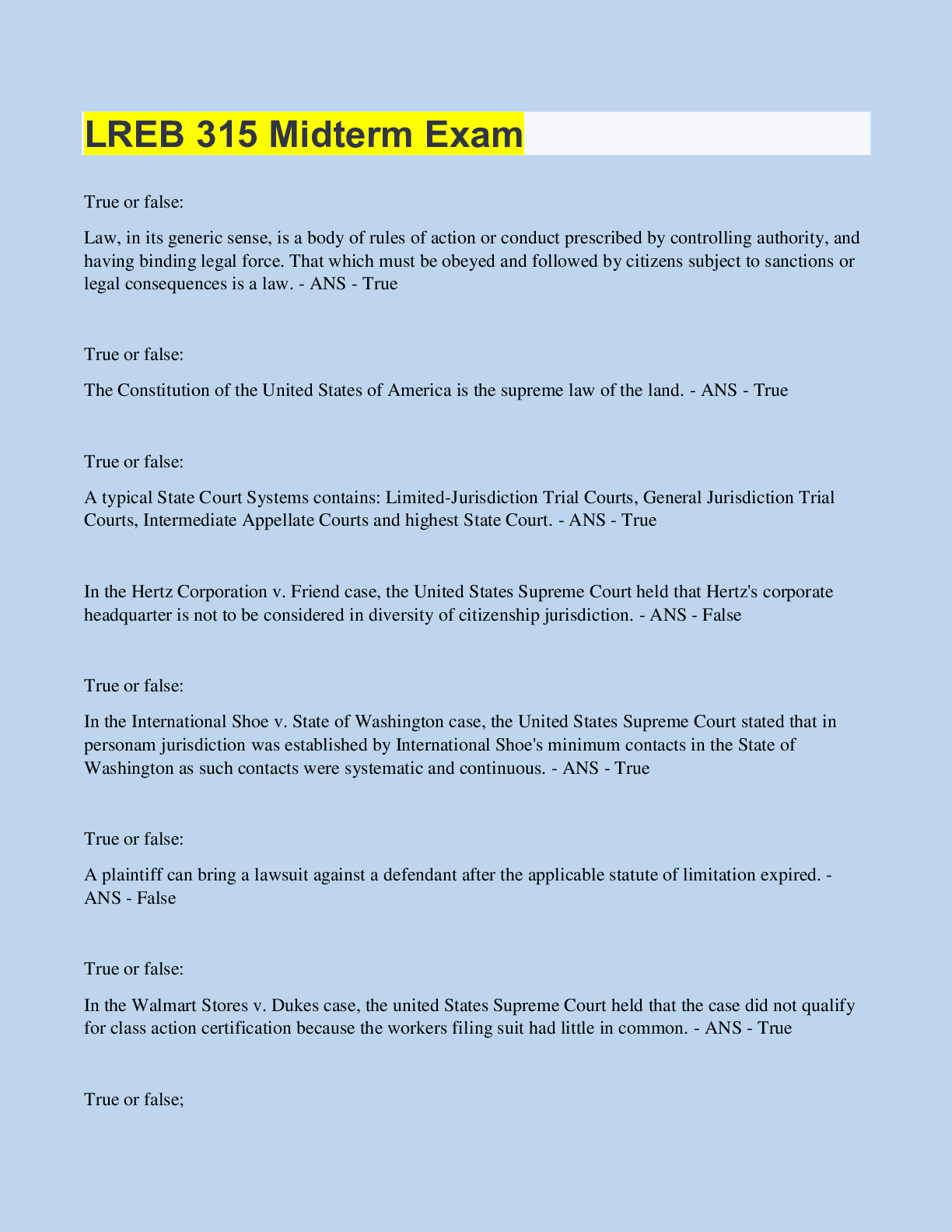
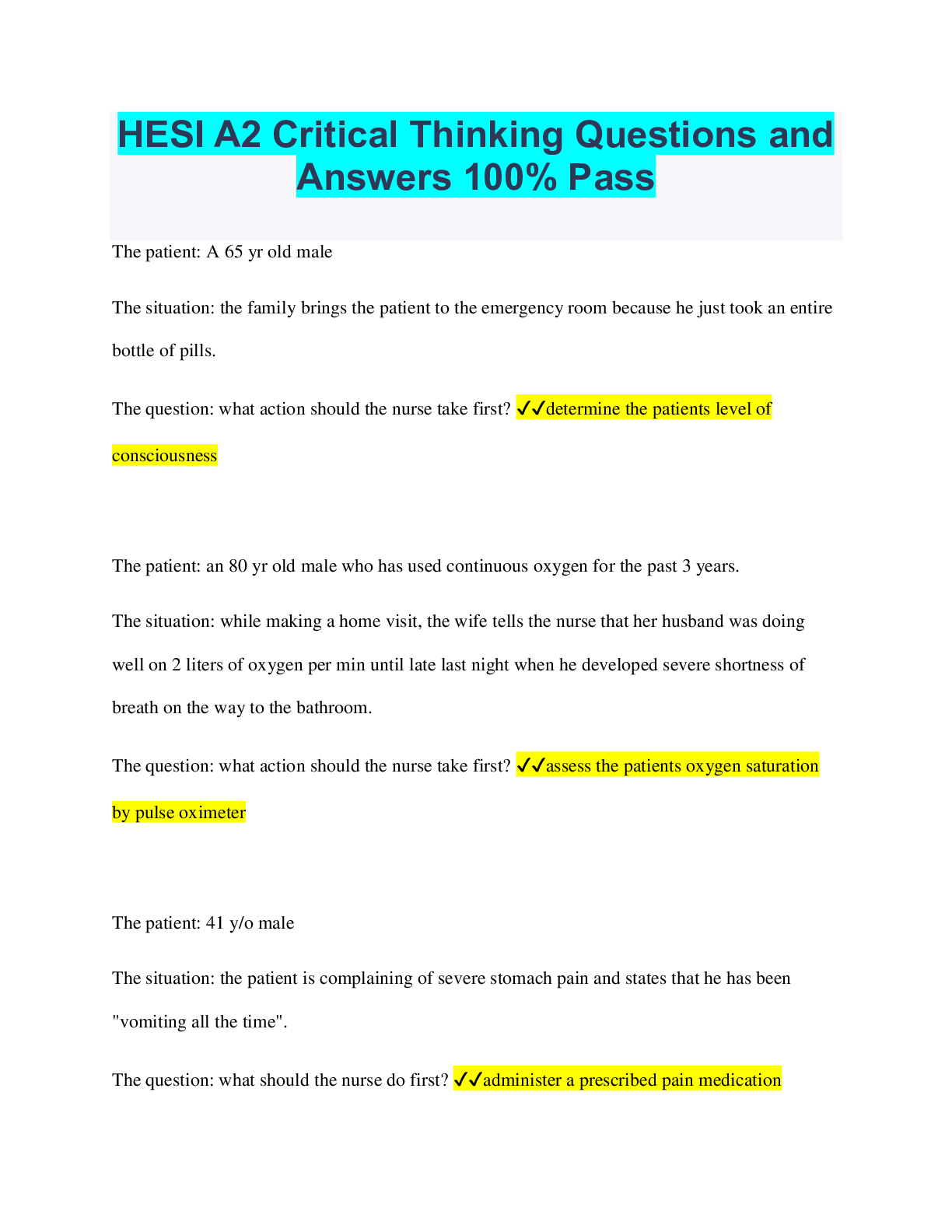
 Chamberlain College of Nursing – NUR 511 WEEK 6 Part 2.png)
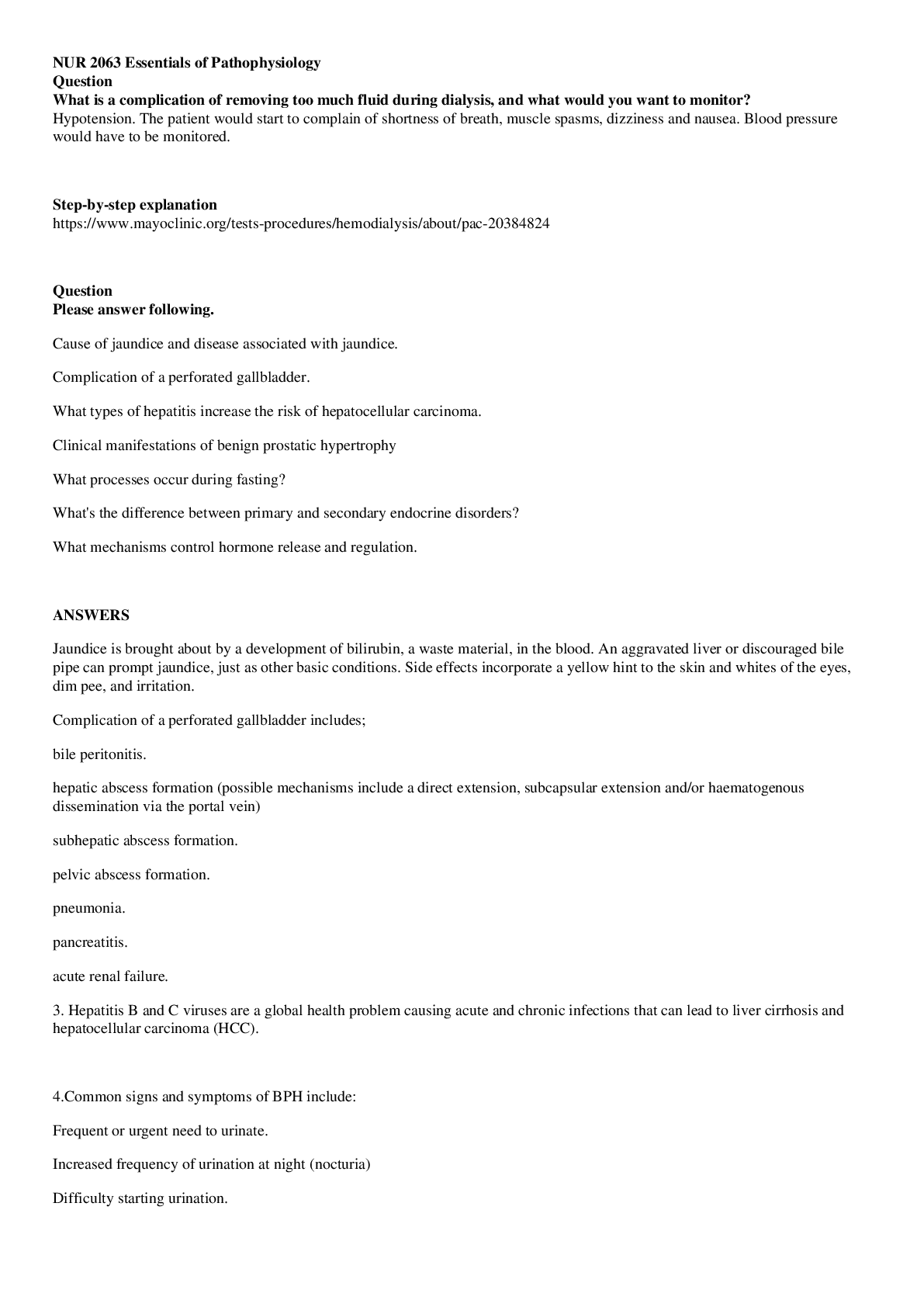
 answers.png)
 answers.png)

